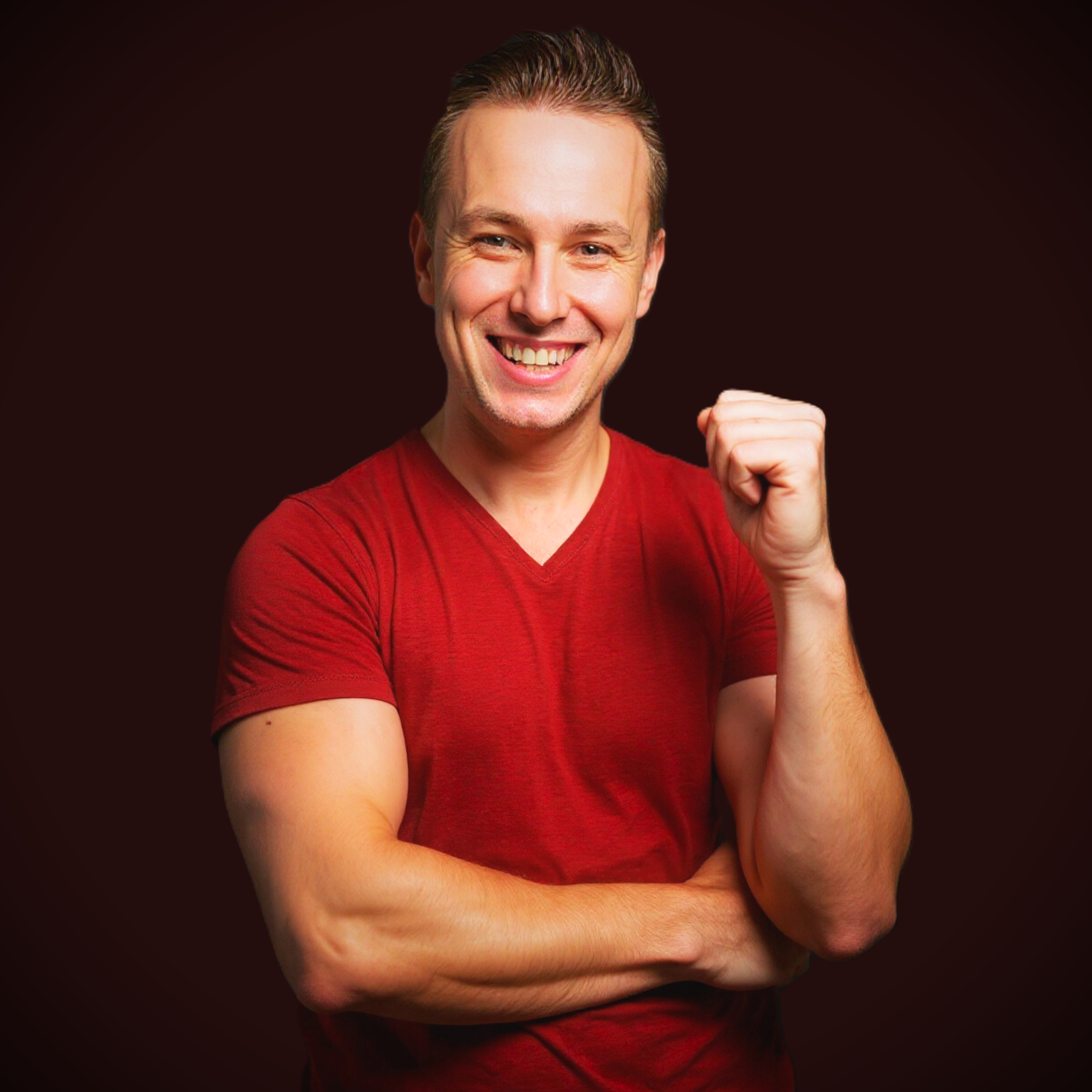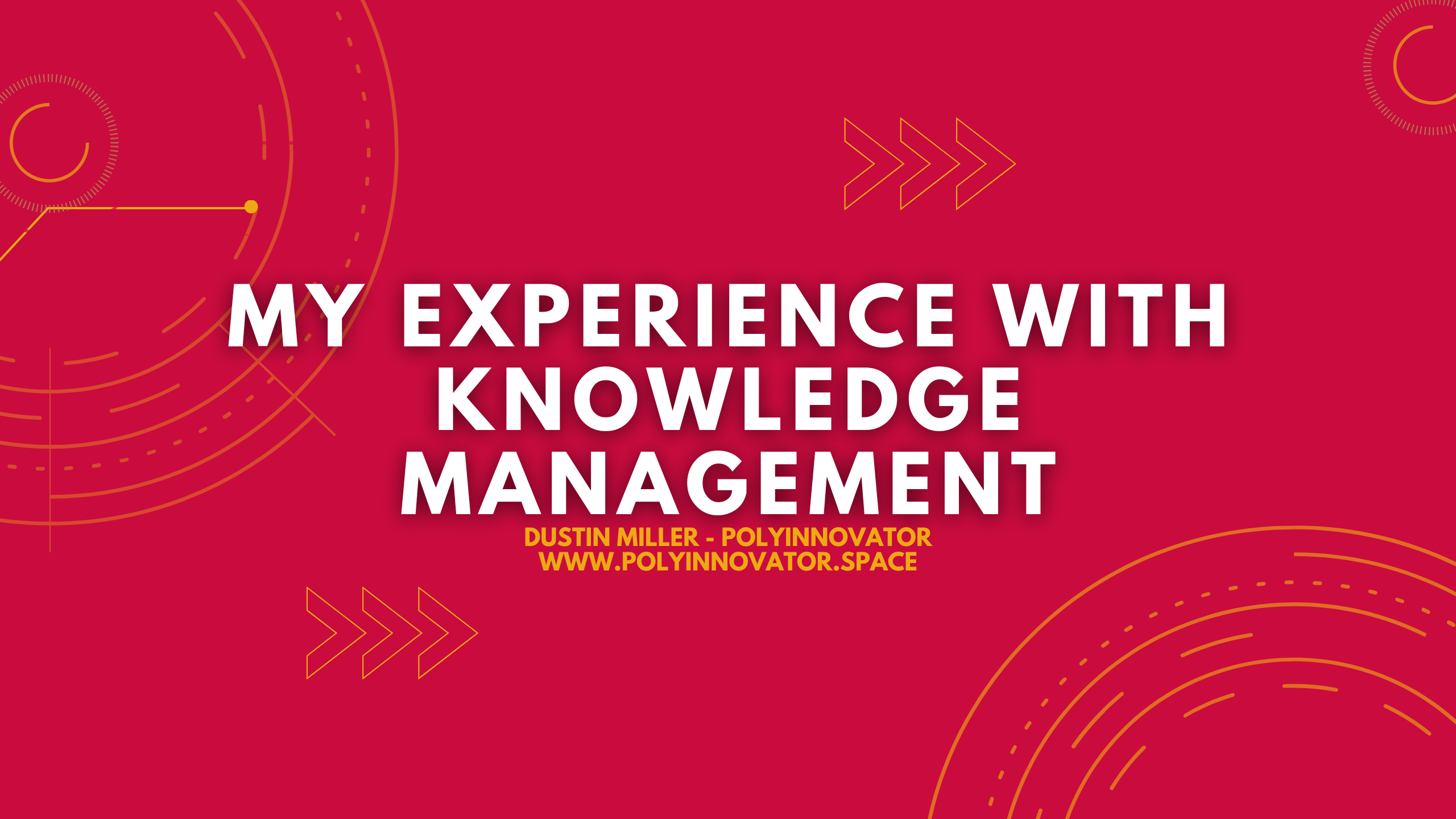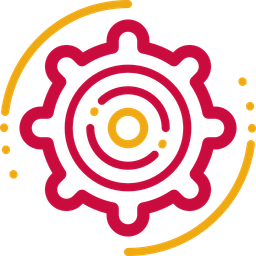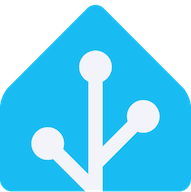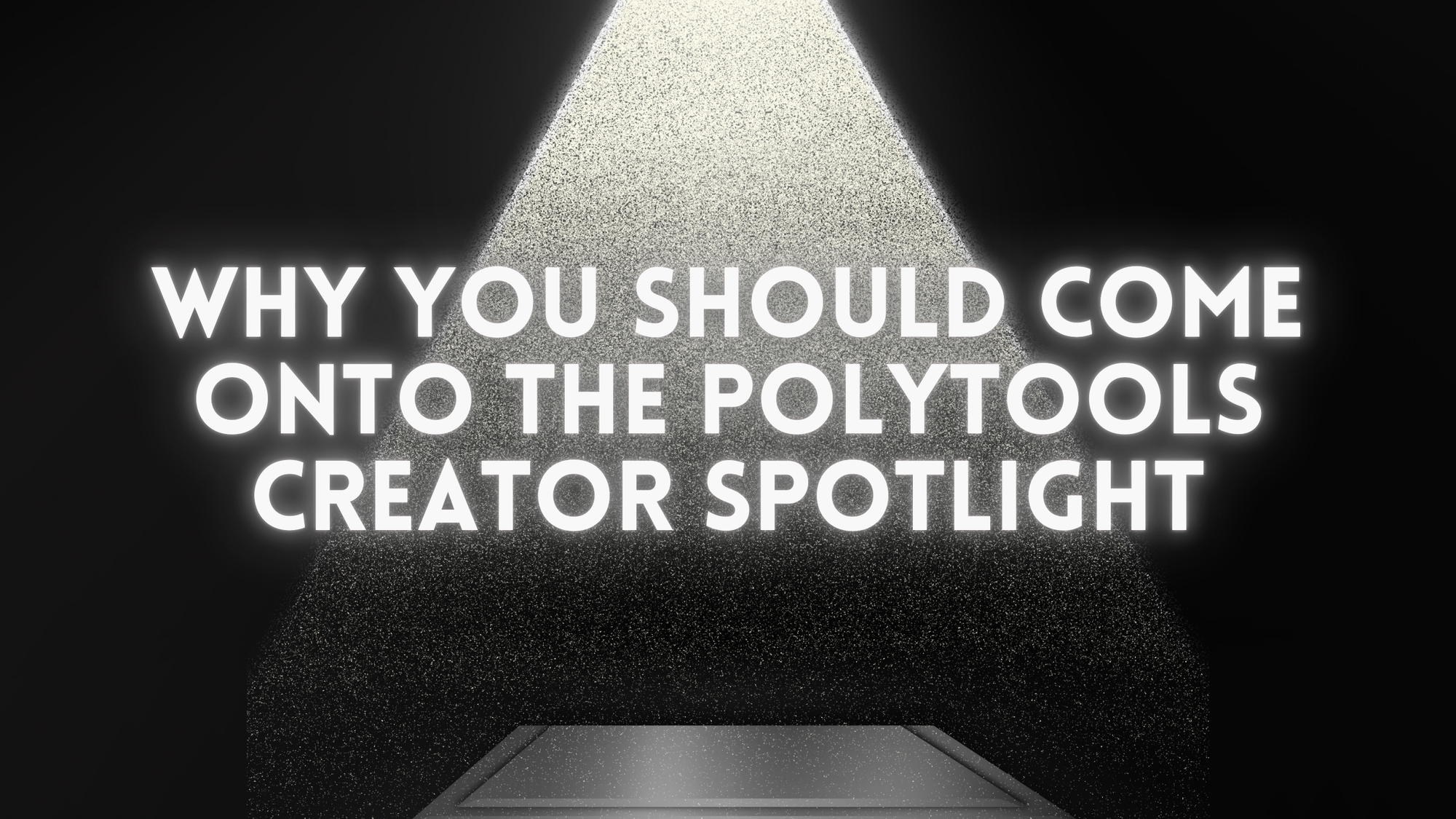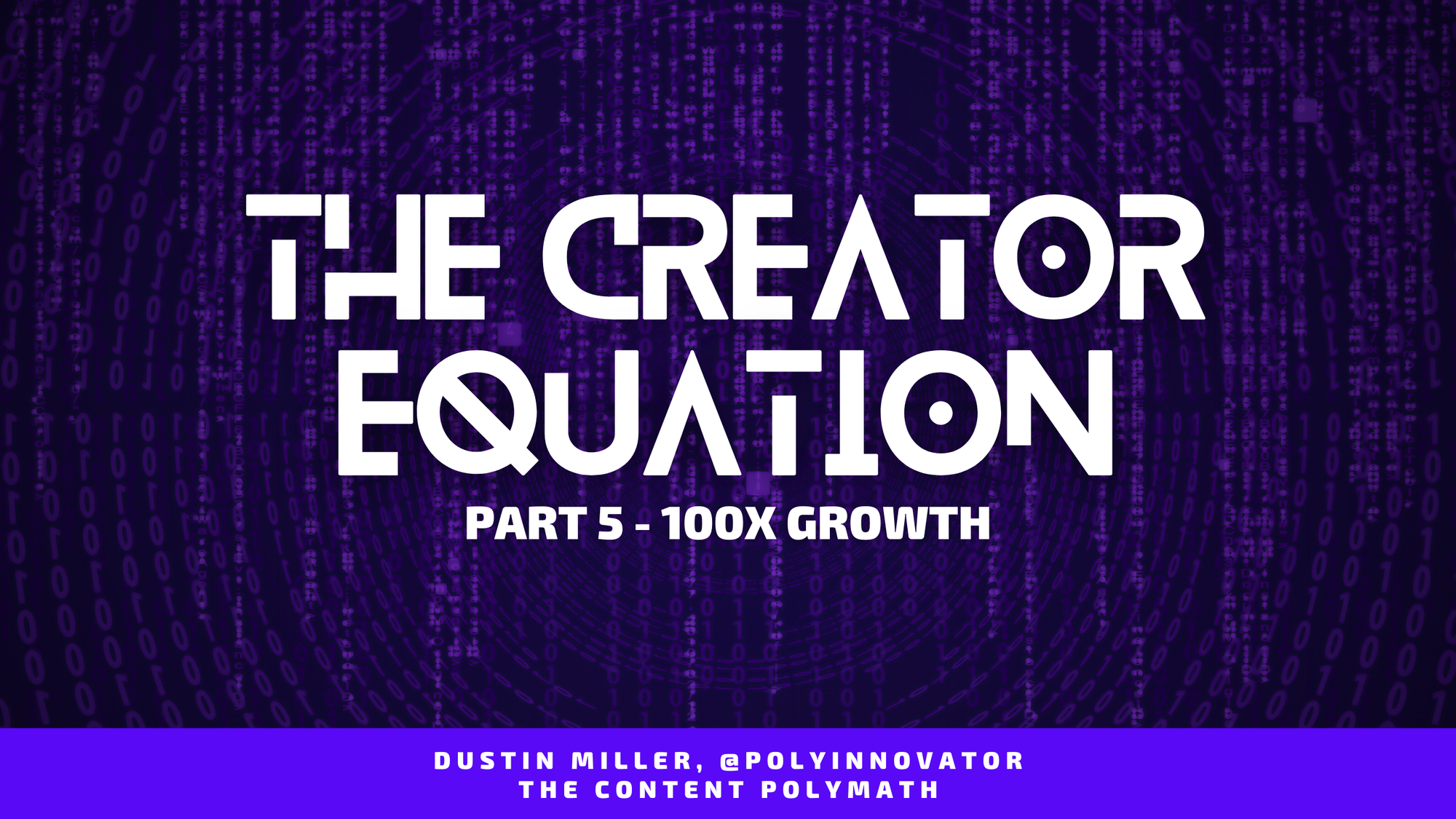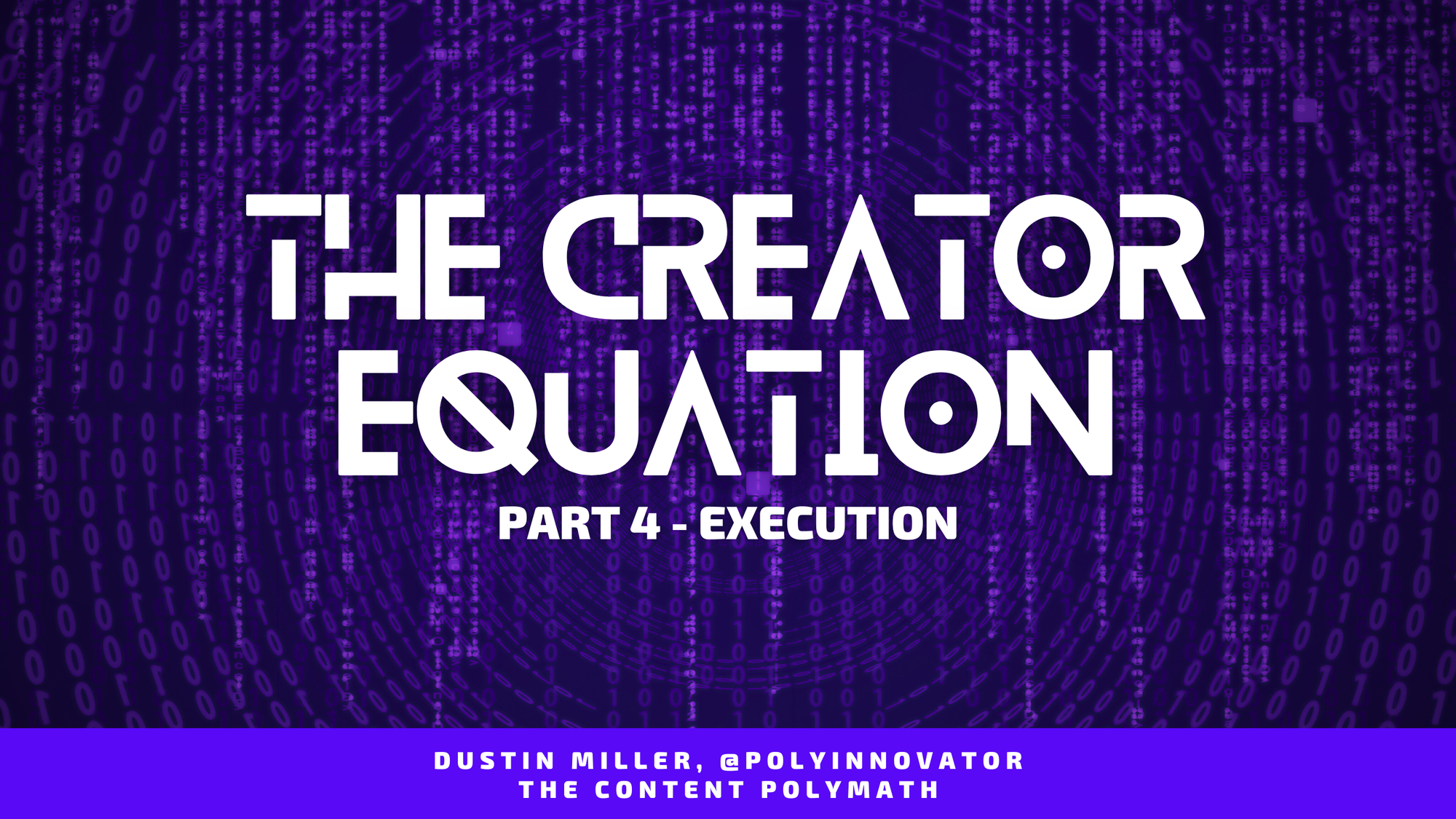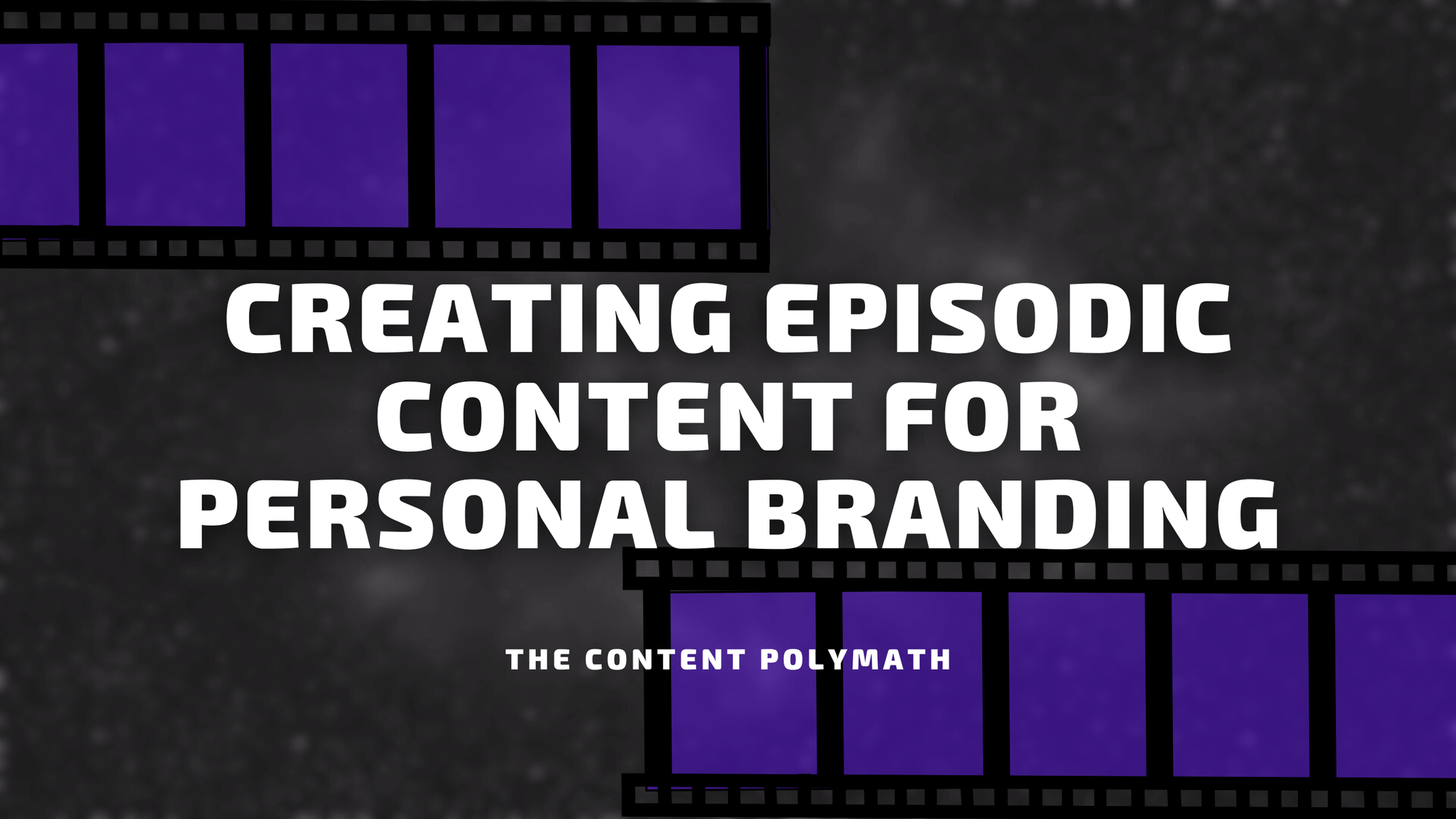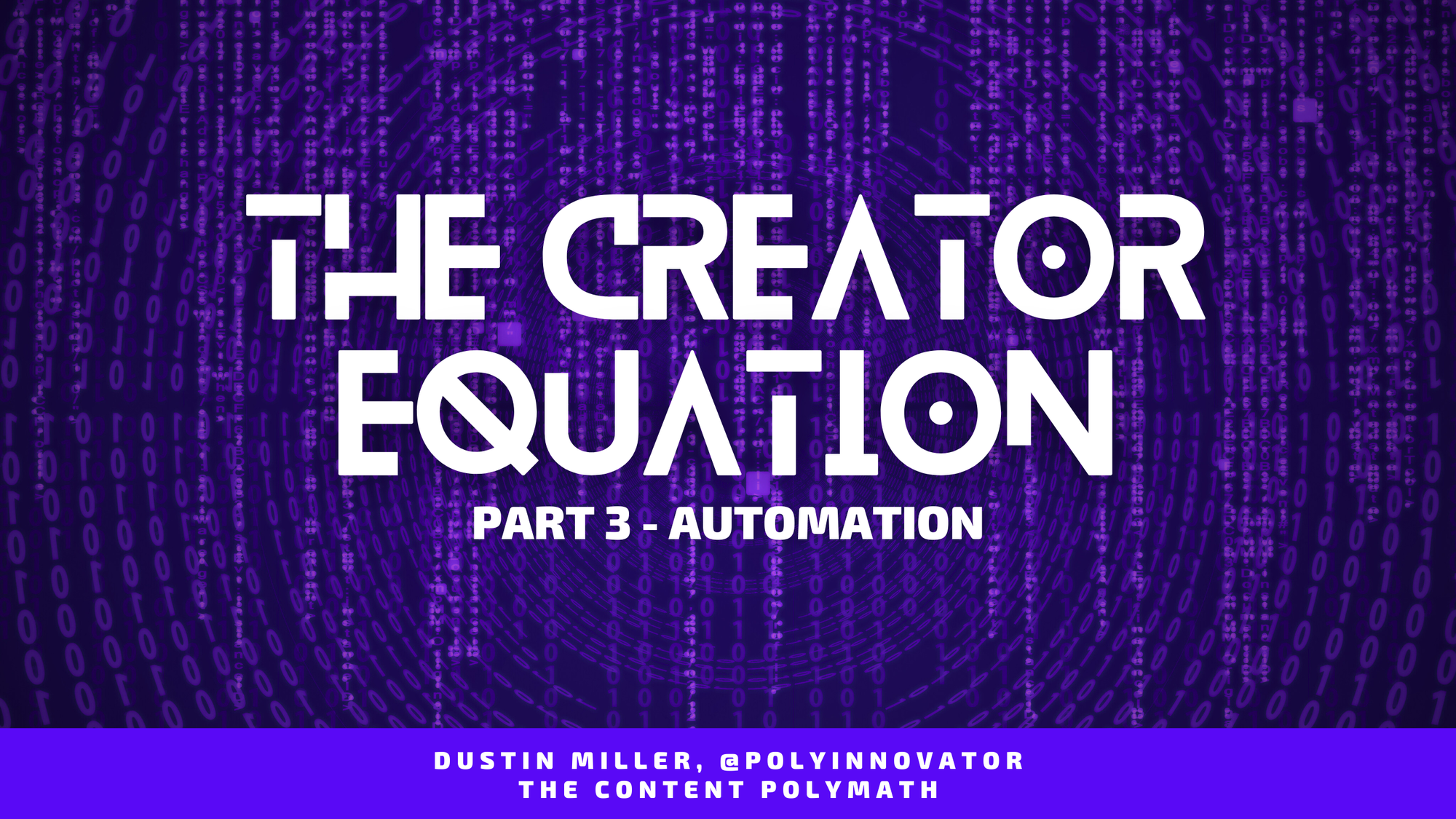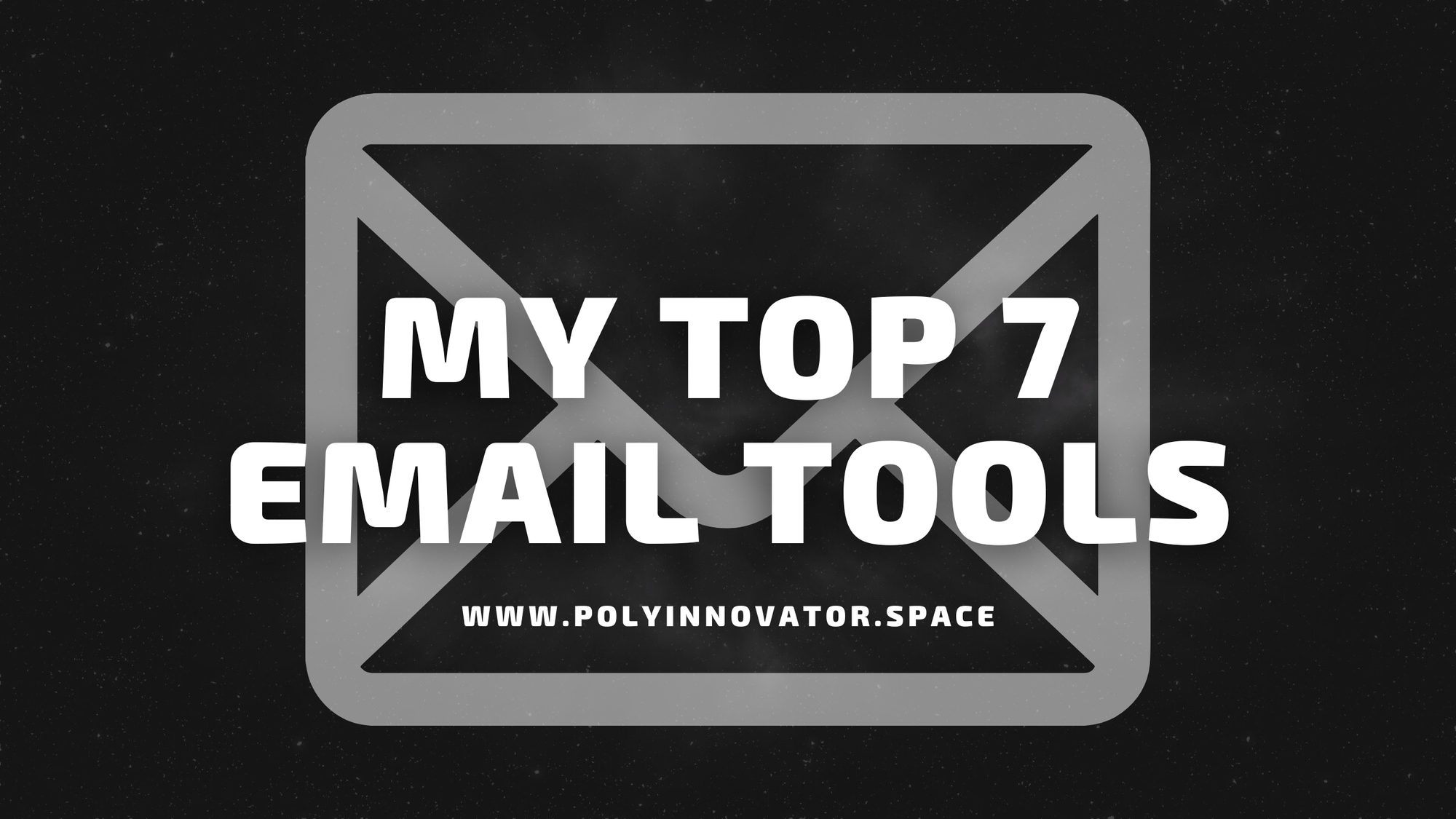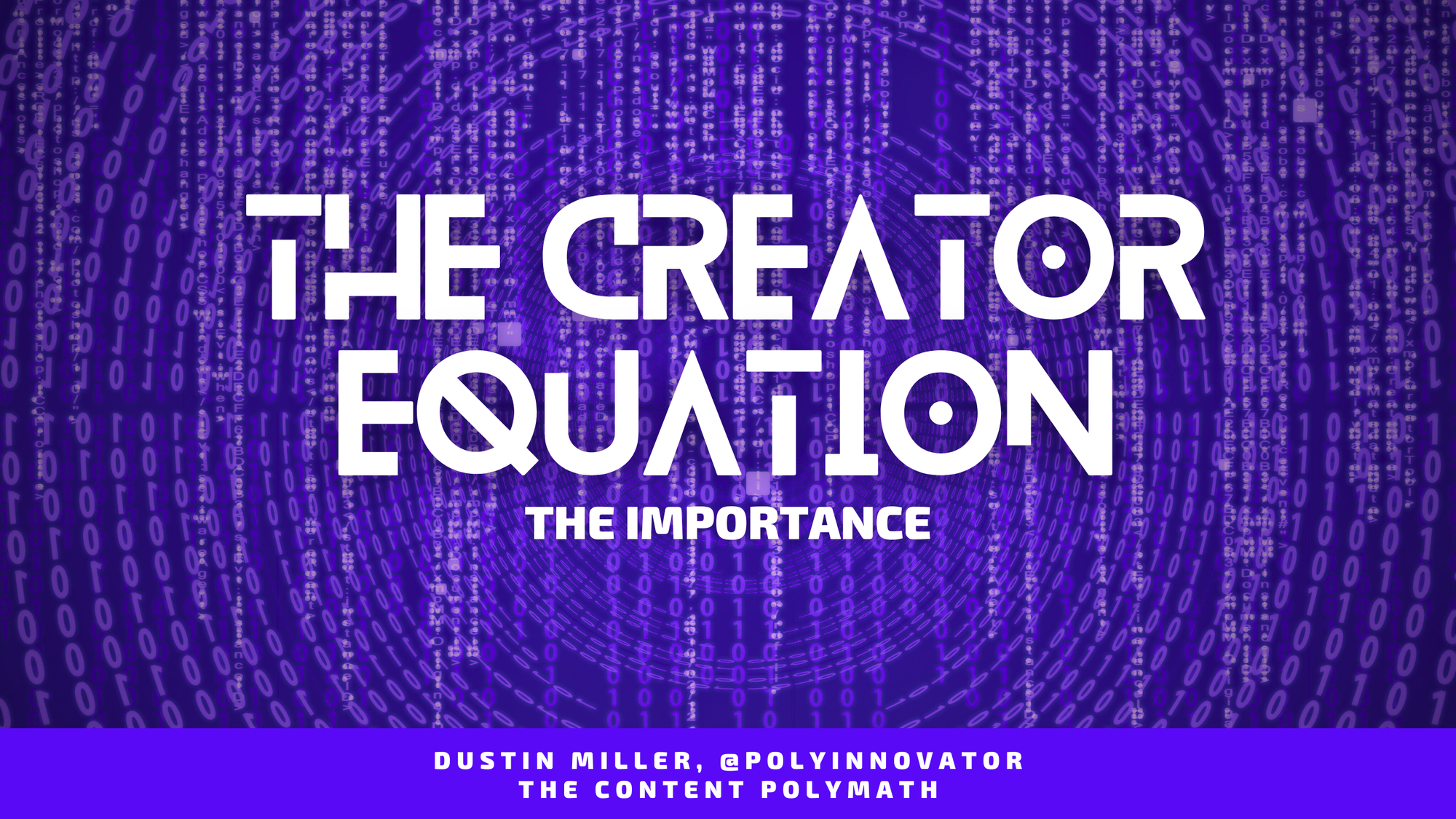While there are a number of posts I want to make in this 🧠 PIOS Update category, they mostly need more time to build out properly. Thus today I felt it wise to at least give you something. That being my journey with knowledge management tools.
This seemed wise because it would allow you to understand why I created the PIOS, where I am coming from when I say Obsidian is the best (at least in my objective opinion), and perhaps how you can incorporate it in your own system.
Let's go through this together!
2018
What I would say is the start to my journey here. This is really when I started to work on content again. I technically started blogging in 2017 again, but that was on Medium. Also I didn't have too much in the way of planning, as I simply moved my posts from wordpress to Medium in 17.
In 2018 however is when I wanted to make videos, and I did start making podcasts. Over the course of the year I would try out various content platforms, recording styles, and I would practice video making. In that time I would spend a ton of effort trying to plan out my content more.
Most of it really happened in Google Sheets, which is where I started.
2019
This is when I was really determined to try and work on my OmniContent more, or at least plan it out better. I would try out things like Notion, Clickup, Monday, Taskade, and various other project management/task management tools.
At the time I still saw each of my platforms as siloes, even the Omnicontent (which is video/blog/podcast all rolled into one) was its own silo. Thus in the spreadsheet they would each get their own section then their own sheet even.
During this time I was making content around my DIY Modular Degree framework. Which is what I started PolyInnovator on initially. It also too started out in Google Sheets, and was my main motivator, even more than content, to find a way to organize a long list of information/links/database items.
Eventually I would move to Airtable, and that jump from sheets to databases made a huge difference. I could finally sort my courses into semesters, and I could showcase different content siloes in a novel way.
Around the end of the year I think I finally gave Notion another shot, and that's when I really started to take control of my knowledge management organization. Here is a podcast I did around early 2020 after moving to Notion. https://polycast.transistor.fm/episodes/notion-second-brain-fireside-micro-polycast
2020
This is the year where I started really organizing all of my content into a production ecosystem as I called it, and really started to refine the Modular Degree into something a person could copy for themselves. Eventually leading to a template they could download.
However it is this year where I made much more in the ways of variations of databases. From making a "CRM" for all of my PolyCast guests, to planning out my workout regimen in a new way with databases, and more.
Not much else changed at this point beyond just messing around with the dashboard.
2021
That's the thing about Notion in particular, even more so than Obsidian, but you tend to rebuild your system more often. Something about the freeform design makes you compulsively change things up. I know I'm projecting here a little bit, but I've also encountered countless people who have the same problem.
Notion is like Lego, and just like with Lego I'll have a really awesome build... then I'll break it down to rebuild it better again.
Over and over I would remake my PIOS, which didn't quite have the name at the time. More so going for Personal PolyInnovation System, or even focusing on the "Self-EduDevMent" philosophy I've talked about on this site.
I remember also having a lot of trouble in coming years with internet. My ISP being really crappy, and the wiring in my building crappy as well. Between both of those things my connection would go out a lot, and sometimes for days or even weeks at a time.
Making it really hard to manage my content production, let alone interviews, without having that access. This is also when I decided to write one of my more popular posts, after coming across so many task and project tools:
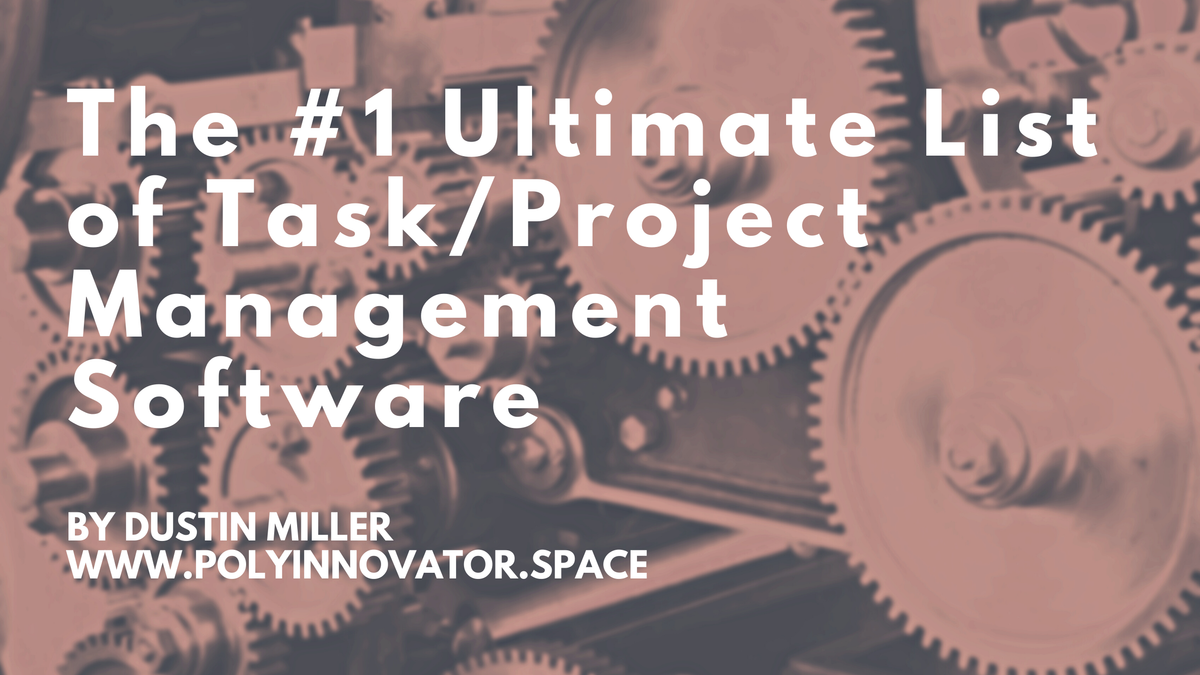
2022
As with Notion before, when I tried Obsidian I hated it... at first. That lead me to ignore both tools for a while, at least until the need for them came again.
I fell in love with both on my second attempt, Obsidians 2nd didn't come until 2023, but this is when I first took a look at the tool.
Not as much happened this year, but I slowly started pivoting from focusing on interviews to more solo content. Meaning my planning also needed revamping in my content database.
Around this time too I stopped focusing on the Modular Degree for myself, and I realized at this point most of my learning is going to happen over time. I don't want to do a deep degree level of learning anymore.
2023
This was a BIG year for me, as I tried many many tools to replace Notion. I was frustrated by all of the various lagging, loss of connection, and constant revamping the dashboard. It wasn't USEFUL to me at the time. It got the job done, but just barely.
I do want to note that one of my best experiences with creating content was when I was actively using the calendar view in my notion database. I would pick a data on the table view, and then on the cal view I could drag and drop. Meaning if I missed a day I could just shift everything down faster. Or double up on a single day, etc.
This year I would make my first jump to other tools, pretty fully. While I didn't 100% out of Notion until late 2024, most of the data was taken out. I moved to Obsidian, and tried that out however I struggled to find any sort of way to plan out my content. Since this year I have looked through the entire plugin catalogue around two dozen times.
After Obsidian.
I moved to Capacities, as it was a better database tool at the time, but the user experience was terrible. Constantly having issues with clicking text boxes, selections, or just using the tool.
Not to mention the way they do daily notes and calendar was subpar, and still is for the most part.
I liked the potential of how the Modular Degree could fit into it however!
This is something I should also note too, there seemed to be a strong dichotomy between how much a tool would help me with my Learning versus my Creating.
Now the logical answer would be to use two tools, and maybe one day I will. However I wanted, and to some degree still want, to have it all in one.
After many months in Capacities I moved back to Obsidian, and into Acreom as well. Given that I could sort of go back and forth. However most of my attention was on Acreom. This is because they had promised a calendar integration in their marketing.
However I come to find out that feature was taken out a few months prior. Not to mention I had some terrible issues with syncing, and getting my data. I almost lost all of my data not once but twice.
After that scare I moved back to Obsidian around New Years, as both apps were stored in Markdown so it was a lot easier than moving to a cloud based tool like Notion or Capacities.
Keep in mind EVERY TIME I moved tools I had to move it all by hand. One by one, as none of the tools had import/export features that actually worked. None of them.
I should also mention it was this year that I tried, Affine, AnyType, Appflowy, and more!
2024
Given for my love of tools this is when I created my database of tools, and in particular my first couple iterations of the PolyTools Directory.
Another reason for me to use knowledge management tools.
Not only that but I sort of let myself experiment more again. I went from Airtable to Notion, and back, and then eventually to NoCoDB. Which is an interesting process, as for me I simply wanted to have the database be public, and not have to pay for the tool for the time being.
As of today of me writing this I found out that NocoDB changed their pricing model to that of closer to Airtable's. This being the very reason why I LEFT Airtable after so many years.
This past year has been a lot, and I have full sent into Obsidian. This is where I would dig into the plugin database even more. I've tested out every calendar plugin, or project management plugin, etc.
Sadly nothing really came of any of them. However I was able to use the Kanban plugin for a while, but it stopped working as it should as well in 2025. I was never able to get the sync plugin to work right on my various devices, so up until this point I haven't been able to use it outside of my main device.
This came to a dreadful close out of the year, as my computer wouldn't load into windows after an update pushed itself onto my computer without my permission. Thanks Microsoft. Not only this but I almost lost ALL of my data, but I managed to pull through and scrape everything off of my drive.
Let this be a reminder to backup all of your data. I also started thinking about running my Obsidian vault off of an external drive.
2025
There has been so much that has happened this year, that I haven't wanted to think about changing tools. I did try out Kortex by Dan Koe, and a variety of other tools. I sort of had to too as I needed to add them to my PolyTools Database.
As I mentioned before I'm going to have to find a new home for my tools database. While I can use Obsidian Bases they are not public, and the premise of me having it on NocoDB or Airtable was to have it public. Perhaps I'll just do Notion again, I'm not sure.
I've spent a decent amount of time this year tweaking my Obsidian vault, trying out plugins again, and honestly I feel pretty satisfied now. While I can't particularly plan out my content ahead well, the actual act of doing the content I've gotten used to. I used a grid layout on an Obsidian Base too to create a list of posts that I can then see in my side bar.

In the same spot as the list on the right, there is also a "Day Planner" showing me my calendar events. Although its not the same as having a full fledged calendar app, so I'm not sure how effective it is. I almost need to have a calendar opened at all times.
I had that in the past with Cron or Rise cal apps, but Notion Cal just didn't do the trick for me.
I like the premise that Obsidian can be an all in one, but its just missing AI and Calendar. My next challenge is actually incorporating AI, with presumably Ollama and/or some local LLM connected to my Obsidian Vault. There are dozens of plugins to use too.
How do I think things are going to go in the future?
We're already seeing a rise in AI adopted across the board in many ways. From assisting with writing, to AI agents, and I think even more importantly being able to reference any one of your notes.
Some people have even used NotebookLM now exclusively, or perhaps ChatGPT.
However the platforms themselves are too volatile, as its far too easy for data to be replaced or lost, and not to mention having to have internet access. Also I personally do not trust OpenAI, Google, Anthropic whatsoever with my data.
You shouldn't either.
While I will still use those apps, as they do make things easier. I do my best to try and keep my data from as personal as I can get when using them. Sometimes I have to input my site, or idea, but I digress.
AI I think too will also be in the homes, but much more like having your own smart speaker. Connected to your Obsidian Vault or something, and as well as a local LLM running on local hardware. Using something like this:
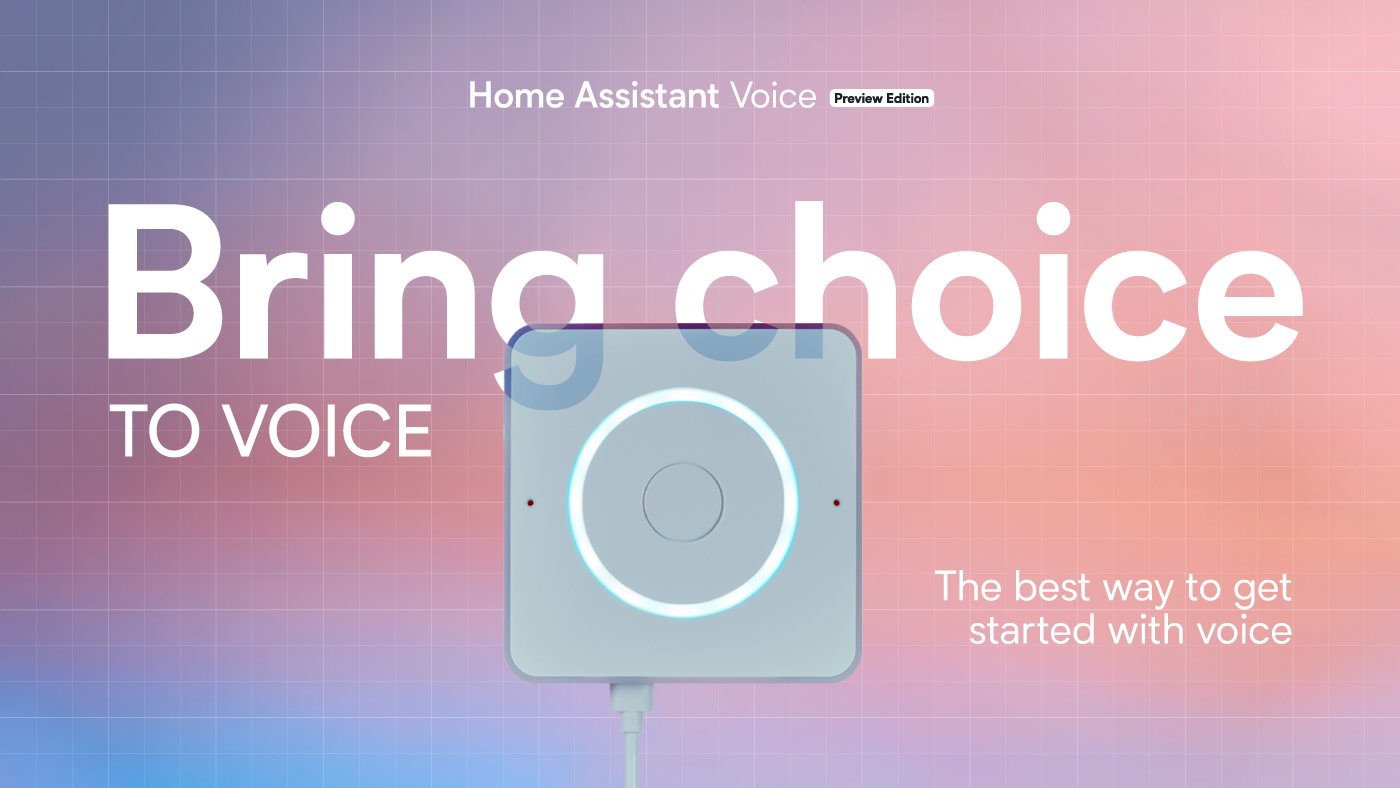
I bought one of these, and I look forward to trying it more.
Going Forward
Let me know what you think about my journey! I think I missed a few details here and there, and honestly it was a bit hard to look back on a lot of it. There were some really stressful times, and in 2023 I spent literally about a month just simply moving my files between apps (multiple apps spread out over the course of the year to be clear). I also got deathly ill that year, and so it was obviously distracting me from doing anything.
I think that is a valuable point though to leave off on.
You never know what sort of health issues you might face down the line, and you never know what sort of data loss situation might occur. When you organize your data well and effectively, IN THE RIGHT APP. Then you can adapt to those changes much more easily.
I would say Obsidian is much more conducive to those who may have had a stroke, as you can use built in windows text to speech, or even a variety of plugins. I'm sure too there are some adaptive plugins too to help in some cases.
There are ways of inputting your information across many different tools, and how you organize it is the key to 🧠Knowledge Management!
![Official Website for Dustin Miller PolyInnovator [LLC]](https://www.polyinnovator.space/content/images/2025/03/polyinnovator-logo-2024.png)
